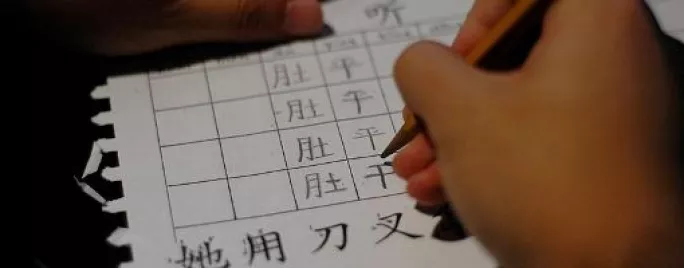‘There is nothing fake about Shanghai’s success in maths’
Ray Tarleton, associate director of international school leadership development at the National College for Teaching and Leadership, writes:
If you’ve tried to buy something made in England recently, you’ll know it’s impossible, unless you’re looking for cauliflowers or cabbages. “Made in China” is the label you find on everything - from Apple computers to apple juice. In Shanghai itself, fake labels adorn Chinese “Prada” purses and “Mulberry” handbags. China has cornered the market in goods both real and false.
But there’s nothing fake about the latest Pisa (Programme for International Student Assessment) test results, where China appears to have the monopoly on educational wisdom as well. The region, at number one, has world-beating test scores in maths. The UK, in twenty-fourth place, is merely average.
What accounts for Shanghai’s remarkable success? Headteachers and maths teachers from the UK visited recently to find out and report some easily copied strategies.
First, the Chinese waste no time on teaching theories of education. Maths is the priority in training rather than studying theories about how children learn. So while they may not be better teachers than their English counterparts, they have the advantage of knowing much more about their subject. And it shows.
Maths teachers, whether with infants, primary or secondary children, are maths graduates who know and love their subject. Subject knowledge is king. “I am a master teacher in mathematics, not in other subjects,” one teacher told us.
In England, in comparison, though they may be experts in child psychology and pupil interaction, primary teachers are likely to have only a GCSE in the subject. To catch up, we have to improve the maths knowledge of teachers in all phases. We need teachers with A-level and university qualifications.
Even though primary teachers argue that being generalists is what makes them special, primary schools should be encouraged to provide specialist maths teaching. A national quota of primary teachers should be trained as maths specialists. And in secondary schools, all maths teachers should be able to teach A level, stretching and extending their students whatever the year group.
The second change is structural and could easily be introduced in every school in the land. Maths should be taught, as it is in Shanghai, at the start of the day with time guaranteed for maths teachers to mark and assess work. “Continual feedback builds up your confidence,” one struggling student told us.
Marked work needs to be returned to students before the end of the day so that they can see if their performance is sufficient. If it isn’t, they need to remain in school for catch-up classes. No student should be allowed to fall behind. Why do we let them? The Chinese wouldn’t tolerate it.
The Shanghai system recognises the importance of the subject also in the amount of time allocated to teaching it - roughly twice as much as here. If maths matters, we have to make it a priority and ignore the squeals of anguish from other subjects.
The third difference is about professional collaboration. In England, teachers work in isolation and teach up to 90 per cent of the time. In Shanghai, teachers work together, planning and observing each other’s lessons, formally teaching only 30 to 40 per cent of the week. This amount of professional time would be impossible here, but there are trade-offs between class size and teaching contact time. We know that the Chinese have already optimized this.
Teachers in England could learn from each other by weekly shadowing classes, instead of annually doing observations to make judgements, produce gradings and write up performance reviews with all the bureaucracy that involves. Reduced contact time would also mean more opportunities for teachers to run after-school catch-up classes.
In China, the children work far harder than their teachers. In England the reverse is true. In Shanghai, teachers have parent contacts for all their classes on their mobile phones. Parents are just a phone app away. Texted test results may hit the phones before the child even returns home. A request for their child to remain in school for a catch-up session is accepted without question. In England, the response would range from indifference to hostility.
Chinese parents expect daily maths homework and even set it themselves for younger children. We have to replace the games consoles with maths exercises. Daily practice in this subject should be the equivalent of practice to improve sporting skills or learn a musical instrument.
Maths is the basis of all knowledge, essential to our global aspirations. Unless we change, only the cauliflowers and cabbages will be left to count.
Keep reading for just £1 per month
You've reached your limit of free articles this month. Subscribe for £1 per month for three months and get:
- Unlimited access to all Tes magazine content
- Exclusive subscriber-only stories
- Award-winning email newsletters




